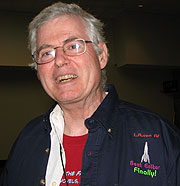A Quote by Susan Sontag
The ratio of authentic literature to trash in pornography may be somewhat lower than the ratio of novels of genuine literary meritto the entire volume of sub-literary fiction produced for mass taste. But it is probably not lower than, for instance, that of another somewhat shady sub-genre with a few first-rate books to its credit, science fiction.
Related Quotes
The Booker thing was a catalyst for me in a bizarre way. It’s perceived as an accolade to be published as a ‘literary’ writer, but, actually, it’s pompous and it’s fake. Literary fiction is often nothing more than a genre in itself. I’d always read omnivorously and often thought much literary fiction is read by young men and women in their 20s, as substitutes for experience.
[Michael] Chabon, who is himself a brash and playful and ebullient genre-bender, writes about how our idea of what constitutes literary fiction is a very narrow idea that, world-historically, evolved over the last sixty or seventy years or so - that until the rise of that kind of third-person-limited, middle-aged-white-guy-experiencing-enlightenment story as in some way the epitome of literary fiction - before that all kinds of crazy things that we would now define as belonging to genre were part of the literary canon.
It remains a mystery to me why some of that [pulp] fiction should be judged inferior to the rafts and rafts of bad social [literary] fiction which continues to be treated by literary editors as if it were somehow superior, or at least worthier of our attention. The careerist literary imperialism of the Bloomsbury years did a lot to produce fiction's present unseemly polarities.
Only idiots or snobs ever really thought less of 'genre books' of course. There are stupid books and there are smart books. There are well-written books and badly written books. There are fun books and boring books. All of these distinctions are vastly more important than the distinction between the literary and the non-literary.
Everybody should read fiction… I don’t think serious fiction is written for a few people. I think we live in a stupid culture that won’t educate its people to read these things. It would be a much more interesting place if it would. And it’s not just that mechanics and plumbers don’t read literary fiction, it’s that doctors and lawyers don’t read literary fiction. It has nothing to do with class, it has to do with an anti-intellectual culture that doesn’t trust art.
Literary science fiction is a very, very narrow band of the publishing business. I love science fiction in more of a pop-culture sense. And by the way, the line between science fiction and reality has blurred a lot in my life doing deep ocean expeditions and working on actual space projects and so on. So I tend to be more fascinated by the reality of the science-fiction world in which we live.
I often use detective elements in my books. I love detective novels. But I also think science fiction and detective stories are very close and friendly genres, which shows in the books by Isaac Asimov, John Brunner, and Glen Cook. However, whilst even a tiny drop of science fiction may harm a detective story, a little detective element benefits science fiction. Such a strange puzzle.


































